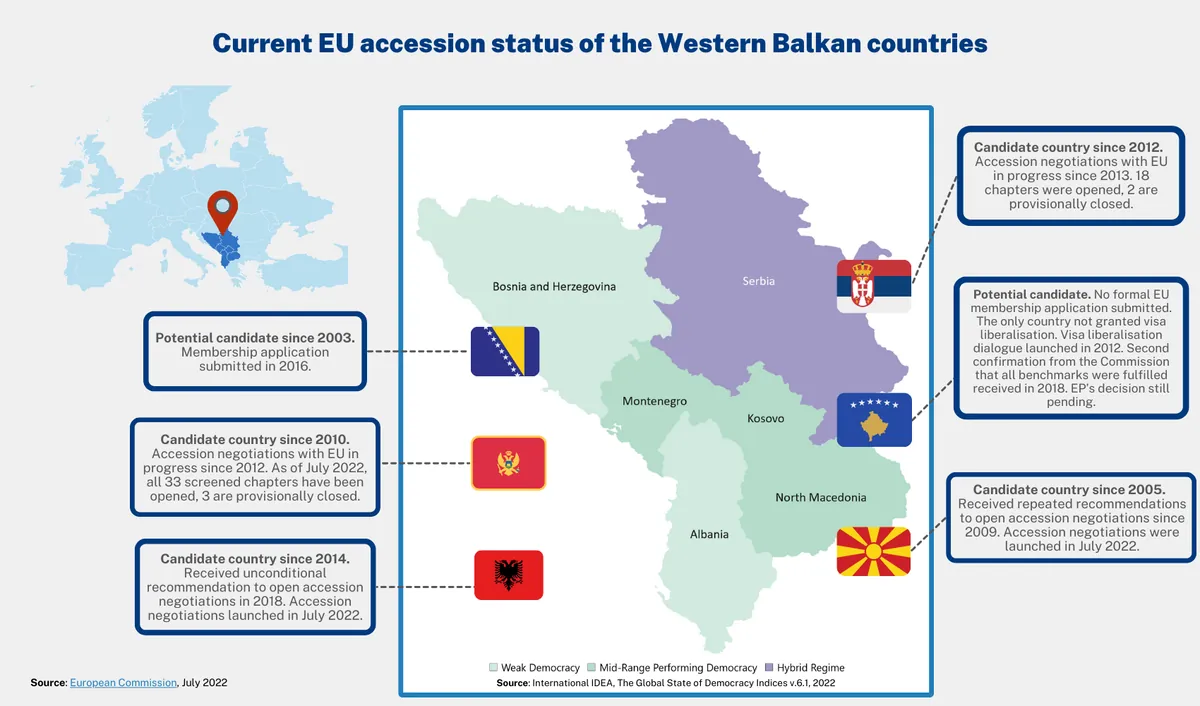Italy Backs Western Balkans' EU Bid, Warns of External Influence
Italian Foreign Minister supports Western Balkans' EU accession, cautioning against Russian and Chinese influence. North Macedonia faces constitutional hurdle in its EU path, with new government opposing changes.

In a significant diplomatic move, Italy has reaffirmed its support for the Western Balkan countries' European Union (EU) accession bids. Antonio Tajani, Italy's Foreign Minister, emphasized the importance of integrating these nations into the EU framework during his visit to North Macedonia.
Tajani cautioned that failing to embrace these countries could lead to increased influence from other global powers. "If we don't extend a hand to those who aspire to be part of the European family, others may step in to fill the void, such as Russia, China, or Turkey," he stated during a press conference in Skopje alongside North Macedonian Foreign Minister Timcho Mutsunski.
The Italian diplomat's comments highlight the geopolitical significance of the Western Balkans, a term coined by the EU in the early 2000s. This region, which includes North Macedonia, Albania, Serbia, Montenegro, Bosnia and Herzegovina, and Kosovo, has been on a complex journey towards EU membership.
North Macedonia and Albania, EU candidates since 2005, began formal accession negotiations in 2022. However, the process is expected to be lengthy, involving the fulfillment of 35 chapters of the acquis communautaire, the EU's comprehensive body of laws and regulations.

North Macedonia's path to EU membership has been particularly challenging. The country resolved a long-standing dispute with Greece in 2018 through the Prespa Agreement, which led to changing its name from Macedonia. This resolution paved the way for North Macedonia to join NATO in 2020.
However, a new obstacle emerged in the form of a dispute with Bulgaria, another EU member since 2007. The EU, responding to Bulgarian concerns, has requested North Macedonia to amend its constitution to acknowledge the existence of an ethnic Bulgarian minority, despite this group comprising less than 0.1% of the population.
The previous center-left government in Skopje had agreed to this constitutional change but failed to secure the necessary parliamentary majority. The current conservative administration strongly opposes this amendment, creating a deadlock in the accession process.
This situation exemplifies the complexities of the EU's enlargement policy, which has faced criticism for its slow pace and intricate requirements. The "regatta principle" allows candidate countries to progress at different speeds, but it also highlights the challenges in harmonizing diverse national interests within the EU framework.
As part of the Berlin Process, an initiative to boost regional cooperation, and the Central European Free Trade Agreement (CEFTA), North Macedonia and other Western Balkan countries have been working towards closer economic and political ties with the EU. The EU has invested billions of euros in pre-accession assistance to support these efforts.
Tajani's strong advocacy for North Macedonia's EU membership underscores Italy's commitment to the region's European integration. However, the path forward remains complex, balancing historical disputes, constitutional challenges, and the broader geopolitical landscape of Southeast Europe.
"We are working and will continue to work for North Macedonia to become an effective member of the European Union as soon as possible."
As the Western Balkans continue their journey towards EU membership, the region's stability and alignment remain crucial factors in European politics. The ongoing process of "Europeanization" in these countries will likely shape the continent's future political and economic landscape for years to come.


































